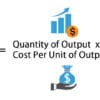Table of Contents
Flashbulb Memory In Psychology
Flashbulb Memory: For many Americans, September 11, 2001, is a date that holds particular significance. It is, of course, the day Islamic terrorists simultaneously crashed four planes in New York, D.C., and Pennsylvania. Most adults can easily remember when this happened, but are they really remembering the attacks themselves, or are they remembering hearing about the attacks? It should go without saying that people cannot really remember an experience they didn’t actually witness, so what are they remembering?
In many cases, when a person says they remember something like 9/11 or the Kennedy assassination happening, what they really mean is they remember learning about the event after it happened. In psychology, these are called flashbulb memories, which are memories of learning something so shocking or surprising that it creates a strong and seemingly very accurate memory of learning about the event–but not the event itself.

The name refers to the old process of taking a photo. When the photographer snapped the picture, the flashbulb would go off, thus indicating a moment in time that had been captured exactly as it appeared before him.
For example, on September 11, 2001, I could tell you exactly where I was, what I was doing, and from whom I first learned about the attacks in New York. In fact, I could give you a fairly descriptive timeline of my actions from morning until evening, which I’m able to recall with great clarity. What I don’t particularly recall, however, is seeing any footage of the attacks or learning about any of the specifics until the following days.
My inability to recall video footage of the terrorist attacks or any of the specifics is due to the fact that flashbulb memories are autobiographical memories. These types of memories are characterized as highly personal memories of how a fact or event is related to you. In autobiographical memories, the primary focus is on the individual, and everything else is secondary.
What is a flashbulb memory in psychology?
A flashbulb memory is a highly detailed, exceptionally vivid ‘snapshot’ of the moment and circumstances in which a piece of surprising and consequential (or emotionally arousing) news was heard. … Flashbulb memories are one type of autobiographical memory.
What is an example of a flashbulb memory?
Flashbulb Memory Definition
I remember as a kid that my parents shared vivid memories of the assassination of John F. Kennedy. They could tell me where they were and who they were with when they found out the president had been shot.
In 1977, Roger Brown and James Kulik called memories like this flashbulb memories. They argued that important traumatic events are stored in a complete and vivid way that captures the context, the event, and the emotional reaction to it. The idea is that when something very dangerous or emotional happens, there may not be a time at the moment to analyze exactly what happened. By storing a vivid memory of the situation, the individual can re-examine it later and learn from it to avoid potentially dangerous situations again in the future.

Since this influential paper was published, psychologists have wondered about the accuracy of these memories. Brown and Kulik looked at the characteristics of memories for past events. They looked in detail at the assassination of Martin Luther King, but also gathered data about other assassination attempts and personal unexpected shocks from the past.
People are highly confident about their flashbulb memories. They feel as though all of the details have been preserved. But, research on memory suggests that confidence is misleading. These studies did not allow the researchers to assess the accuracy of the memories.
Since then, whenever there are unexpected tragedies, psychologists have rushed to get statements from people about their immediate memories of the events and have tried to follow up with them later.
Read Also: Horizontal Asymptote – Learn the Rules
Flashbulb Memory Example
Because of their actions on brain structures known to be involved in fear detection and memory for emotionally relevant information, the stress hormones enhance the formation of the so-called ‘flashbulb memories’ of events related to strong emotions that are usually associated with absolute stress. This process involves the amygdala, and the pathway for encoding these memories involves the interaction between neurotransmitters in the amygdala and in related brain areas such as the hippocampus, along with circulating levels of catecholamines and glucocorticoids. The importance of the stress hormones on memory for emotionally relevant information has been recently confirmed by studies in which blockade of either glucocorticoid or norepinephrine activity impaired the recall of emotionally relevant information. Consequently, the secretion of these primary stress mediators is necessary for the adequate encoding of emotionally relevant information during absolute stress. This enhancement of memory for stimuli inducing stressful and/or emotional responses may be essential for species’ survival.
What Is A Flashbulb Memory
Each type of memory is formed, recalled, or reconstructed in its own way. The emotional arousal experienced during the time of the event is what makes flashbulb memories so strong. For example, when a person first learns about the death of a loved one, the sadness felt at that moment is so strong that the memory gets etched in a little deeper than other memories and are stored in the mind forever.
As vivid as they may seem, particularly around major traumatic events, the clarity of the memory is mostly specific to five things:
- Where you were: It is not uncommon for a person to say ‘I remember where I was when Martin Luther King, Jr. was shot’ or ‘I remember where I was when Kennedy was shot.’ This is because the place is one of the things that flashbulb memories etch in very deeply.
- Activity: Remember when I said that I can recall my timeline on 9/11 with unusual clarity? That’s because what a person is doing when they first learn surprising or traumatic news is also burned in very strongly.
- Who told you: In flashbulb memories, the source of the information becomes a prominent piece of the memory. Whether it was a news anchor or a friend, that person will become as essential as the news itself.
- Affect: One of the more interesting pieces of a flashbulb memory is the individual’s effect and the effect of the person providing the information. The effect is a person’s expression and articulation of their emotions. For example, people who remember the first news reports of Kennedy’s assassination might also remember a visibly upset Walter Cronkite delivering the news on CBS or how their parents expressed their emotions when delivering the news.
Flashbulb Memory Definition Psychology
A flashbulb memory is a highly detailed, exceptionally vivid ‘snapshot’ of the moment and circumstances in which a piece of surprising and consequential (or emotionally arousing) news was heard. The term “flashbulb memory” suggests the surprise, indiscriminate illumination, detail, and brevity of a photograph; however flashbulb memories are only somewhat indiscriminate and are far from complete. Evidence has shown that although people are highly confident in their memories, the details of the memories can be forgotten.
Flashbulb memories are one type of autobiographical memory. Some researchers believe that there is reason to distinguish flashbulb memories from other types of autobiographical memory because they rely on elements of personal importance, consequentiality, emotion, and surprise. Others believe that ordinary memories can also be accurate and long-lasting if they are highly distinctive, personally significant, or repeatedly rehearsed.
Flashbulb memories have six characteristic features: place, ongoing activity, informant, own effect, another effect, and the aftermath. Arguably, the principal determinants of a flashbulb memory are a high level of surprise, a high level of consequentiality, and perhaps emotional arousal.
Read Also: Implicit Differentiation Calculator – Detailed Overview





